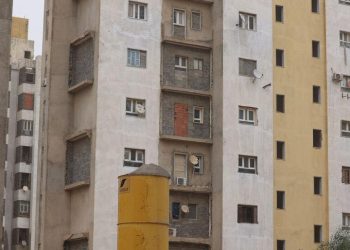By Sami Zaptia.
London, 13 June 2019:
Stalemate seems to be the status in the Tripoli fighting as both sides fail to push forward on the ground. Most of the fighting over the last week seems to have been conducted through the exchange of air strikes.
Meanwhile, the World Health Organization (WHO) reported that as a result of the fighting launched on Tripoli by Khalifa Hafter and his allied forces on 4 April, 653 have died including 41 civilians and 3,547 wounded of which 126 were civilians.
Yesterday, WHO also bemoaned the fact that since the onset of the Tripoli fighting, 19 ambulances have been struck, six health workers have been killed and 10 others have been wounded. Four health facilities have been hit by airstrikes or shelling with two of them having to be fully evacuated.
https://www.libyaherald.com/2019/06/07/serraj-ministry-of-health-condemns-hafter-targeting-of-field-hospital/
The various UN and humanitarian organizations have reiterated that health workers, ambulances and facilities are not a target in any fighting and that both sides of the Tripoli conflict should respect international humanitarian law.
Without the presence of a huge independent media pool or international observers on both sides of the battle lines, both sides continue to accuse the other of International Humanitarian Law violations.
Speaking to Libya Herald yesterday on their way back from Tripoli, the independent fact-finding international delegation confirmed the sense of surrealism in central Tripoli as life seems to carry on as normal detached from the fighting and air strikes on the outskirts of the capital.
https://www.libyaherald.com/2019/06/12/international-fact-finding-mission-to-tripoli-is-independent-and-will-publish-report-organizers/
Both sides of the fighting it seems have invested nearly as much energy in their war propaganda as they have in fighting. The relatively decreasing humanitarian reports of civilian and non-civilian deaths and wounded suggest that both sides may be running out of steam.
For what it’s worth, the forces defending Tripoli claimed to have deterred attempts by the pro Hafter forces to break through their defence lines. They claim to have inflicted on them losses in personnel and in materiel and caused them to flee their positions.
Not to be outdone, the pro Hafter side put up slick video footage of a drone filming as they struck a position held by the Tripoli defending forces, causing them losses as some managed to flee from the soil barricades.
The pro Faiez Serraj Volcano of Rage Operation Room admitted that it had carried out strikes on Hafter’s forces within the disused Tripoli International Airport, confirming the lack of progress on the ground cat-and-mouse battle that has gone on over the airport grounds since April.
Sources who live in the war zone have reported one increasing standout which has been the increased erecting of soil barriers by the Tripoli forces to prevent the possibility of any fast advance by Hafter’s forces.
House violations by both troops
Many residents who have not fled their homes in Ain Zara, Wadi Rabea, Khallat Al-Furjan and Salah Al-Deen have reported that they have been pressured to do so. Those who leave have not been permitted to return by various checkpoints. Many were prevented from leaving, returning or receiving visitors during the Eid celebrations. Many complain that their homes were robbed and are being used as living quarters by the Tripoli forces.
Some fighters are respecting the homes they have forced themselves into – helping themselves only to blankets mattresses and pillows. Others have not been so civilized. The fighters have told homeowners that they have been given permission to use homes for shelter in what has been announced as a war zone. Homeowners who dare to make a fuss are referred to the Serraj government for any compensation they seek.
On the other hand, Tripolitanians have complained most from the pro Hafter forces who have totally emptied some homes of all their belongings. Sources have confirmed these incidents to Libya Herald.
Power cuts
As the summer temperatures have risen in Libya to the high thirties, power cuts have decreased in frequency and length. Sources have reported regular 10 to 12-hour cuts in central Tripoli. Sources living in the outskirts or fighting zones of Tripoli have been much worse for weeks – if not since the beginning of the fighting as infrastructure is damaged.
Speaking with the Faiez Serraj Emergency Committee on Wednesday, the chairman of Libya’s state General Electricity Company of Libya (GECOL) was reported as saying that he was taking steps to increase power generation by ‘‘accelerating the entry of the third and fourth generation units at Ubari power station, in addition to working to connect Libya’s grid with neighbouring countries’’.
He also called for the reduction of consumption through decreased power use by major consumers. The meeting called on all citizens to rationalize power consumption and stressed the politically sensitive issue of fair load-sharing, calling for the cooperation of all regions to ease the burden on the city of Tripoli. Some areas/towns/cities are using their militias to prevent GECOL from enforcing power cuts in their areas as part of the equitable sharing of electricity that it imposes.
Yesterday, for example, GECOL announced that it anticipated Libya’s electricity consumption today will be 6,900 MW whilst current generation capacity is only 5,050 MW, leaving a deficit of 1,850 MW.
Regarding its short-and long-term plans for the electricity crisis, GECOL reported to the Serraj Emergency Committee the need to complete the emergency maintenance operations caused by the Tripoli fighting, as well as the lack of maintenance and the significant damage to power plants.
GECOL also stressed the need for the government to expedite its delayed budget, in addition to activating urgent generation projects such as the West and East Tripoli and Misrata stations.
Petrol shortage
seems to have been ameliorated in central Tripoli at least. Diesel has always proved slightly problematic as consumption by power generators has sky-rocketed. Increased power cuts mean increased demand for diesel for alternate power supply. The outskirts still have shortages of both as the Tripoli authorities restric supply to combat it being smuggled to the pro Hafter forces across the battle lines which civilians are able to cut across via the coastal road and turning south along a number of routs around Garabulli or to Msalata.
Forest fires
The high summer temperatures have also led to a number of dry forest and brushwood fires. This is over and above the fires reported a few weeks ago that the Tripoli administration attributed to shelling by the Hafter forces.
https://www.libyaherald.com/2019/05/09/tripoli-fighting-ambulance-attack-condemned-by-unsmil-and-who/








